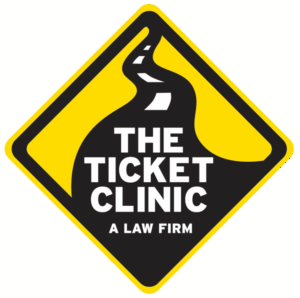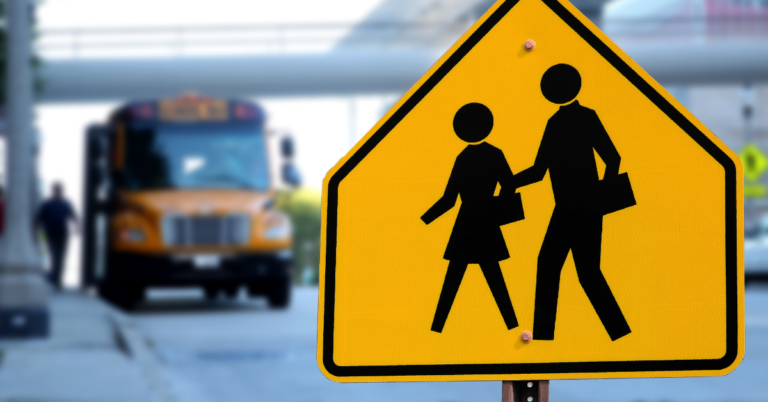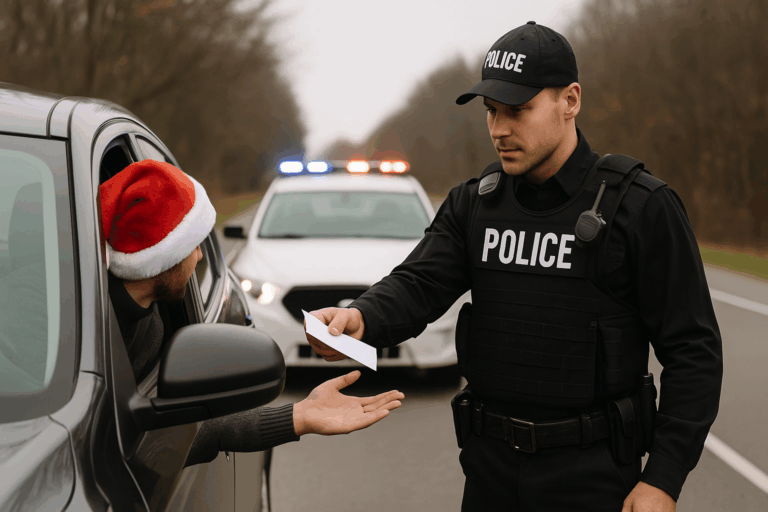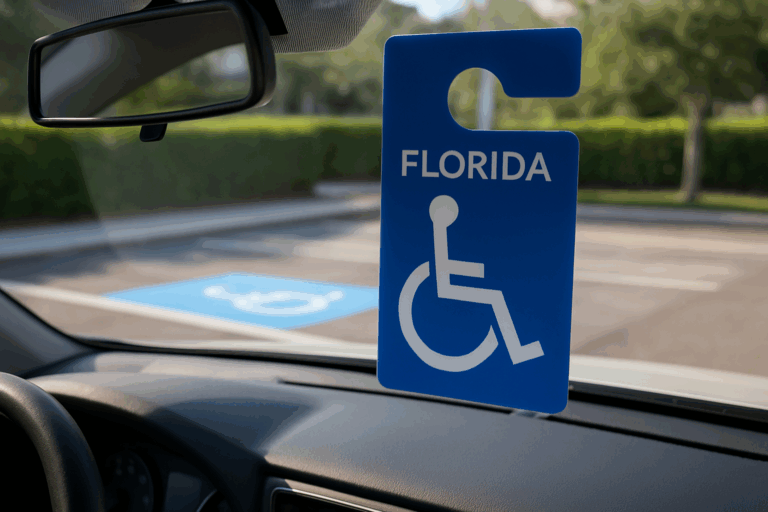The Ticket Clinic was one of the first to warn drivers when Florida rolled out new street racing laws back in 2024. And sure enough, 2025 has proven that law enforcement isn’t wasting a single moment putting those laws to work. We’re seeing more arrests, more impounded vehicles, and some pretty wild new tactics aimed at busting drivers, organizers, and even spectators at street racing events.
Florida’s Street Racing Crackdown: The Law Explained
Last year, Florida lawmakers decided enough was enough after street racing and so-called “takeovers” kept clogging intersections and highways, turning roads into dangerous playgrounds. As of July 1, 2024, the penalties got a serious upgrade. Under the updated laws, it’s illegal to participate in, coordinate, or even just watch a street race or takeover. Florida Statute 316.191 makes it crystal clear that any kind of speed contest on public roads counts, whether it’s drag racing, drifting around corners, or reckless stunts performed to draw a crowd.
Harsh Penalties Await Drivers — And Spectators
If you’re caught, you could face:
- A misdemeanor criminal charge on a first offense, carrying potential jail time and a mandatory license revocation of at least one year
- Fines up to $1,000 for a first offense, with fines doubling or tripling on repeat offenses
- Vehicle impoundment for up to 30 days, plus fees to get your car back
- Felony charges if someone gets hurt or killed, or if you’re caught again after prior convictions
- Possible seizure of the vehicle under civil asset forfeiture laws if it was used in street racing activities
And here’s the kicker: you don’t have to be behind the wheel to get swept up in these charges. Under the law, even spectators can face citations and criminal charges simply for being at an illegal racing event. Just being in the crowd filming donuts or cheering on racers could land you in handcuffs, facing hefty fines and a criminal record.
New Tech Helps Police Bust Illegal Races and Takeovers
What’s really made 2025 different is how law enforcement is stepping up its game. Across Florida, police are cracking down on takeovers and underground racing using technology that would’ve seemed like science fiction a few years ago.
- Surveillance drones are becoming a favorite tool. They can hover high above an intersection and capture crystal-clear video of cars performing stunts, drivers fleeing, or crowds gathering. Officers don’t even have to be visible on the ground to collect evidence for charges.
- Social media investigations have exploded. Law enforcement is monitoring platforms like Instagram, TikTok, and YouTube for posts bragging about upcoming events or showing off illegal races. If you post video clips of your car burning rubber or brag about winning cash at an illegal race, don’t be shocked when that video turns up as evidence in court.
- Police agencies are also collaborating more closely across county lines to track down organizers who move events from city to city, trying to stay one step ahead of enforcement.
- Don’t believe us? Read this.
Spectators Aren’t Safe From Arrest
We’ve seen clients who were charged simply for filming or hanging out at one of these events, believing they were just spectators. Others were shocked to discover their own social media posts being used as evidence against them.
How Florida’s Street Racing Laws Compare to Other States
Florida isn’t the only state cracking down on street racing and takeovers, but it’s definitely one of the tougher ones in the nation. In places like California and Texas, street racing laws have been on the books for years, but Florida’s 2024 update pushed penalties to a level that rivals or even exceeds many other states.
- California imposes misdemeanor charges for street racing, with penalties including jail time, fines up to $1,000, and potential vehicle impoundment. However, while California can suspend your license, it doesn’t always impose mandatory minimum revocations on a first offense the way Florida now does.
- Texas hits racers hard too, treating street racing as a Class B misdemeanor, escalating to a felony if there’s injury, prior convictions, or serious property damage. However, Texas doesn’t typically criminalize mere spectators the way Florida’s newer statutes do.
- Georgia passed new laws recently that allow law enforcement to seize vehicles used in street racing and charge drivers with reckless stunt driving, but again, the statutes don’t explicitly target spectators in the same way Florida’s law does.
- Nevada and some other states have laws against street racing but rarely impose mandatory license suspensions on a first offense unless there’s injury or death involved.
Where Florida stands out is how aggressively it targets not just drivers but organizers and spectators, plus the use of modern tech like drones and social media monitoring to build cases. Florida’s mandatory one-year license revocation on a first offense is among the strictest in the country, and the possibility of felony charges for repeat offenders or events causing injury puts it firmly on the tougher side of the legal spectrum.
Drivers might think street racing is a “minor” crime because it’s common on social media, but in Florida, it’s a serious criminal matter with life-changing consequences—and harsher than what you’d see in many other parts of the country.
The Ticket Clinic’s Experience Fighting Street Racing Charges
The Ticket Clinic has decades of experience fighting street racing-related charges. We know the nuances of these laws, the technicalities of how police gather evidence, and the possible defenses. For example, we’ve challenged drone footage based on chain of custody, disputed radar or pacing evidence, and argued that mere presence at a location doesn’t automatically prove active participation.
Call The Ticket Clinic Before You Pay or Plead
If you’re arrested or ticketed for street racing, organizing a takeover, or even just watching one, don’t go it alone. The penalties are too steep and the consequences too long-lasting to risk a criminal conviction or losing your license.
Call The Ticket Clinic as soon as possible. We’re available 24/7, and your consultation is free. Protect your record, your car, and your future.




The Ticket Clinic Team
We are the largest law firm in the United States to focus soley on traffic-related offenses and traffic tickets. Over +35 years in business, we have developed deep knowledge about traffic court procedure and traffic laws. Our goal is to help keep drivers stay informed about legal issues that could affect them on the road. In our blog content, we like to explore insights in traffic ticket trends and other related issues.



